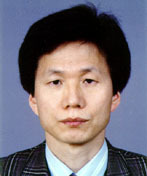‘State history textbook will balance history education’
By Yoon Min-sikPublished : Oct. 19, 2015 - 21:04
As criticism against the plan to revive state-authored history textbooks mounted over concerns that they will be biased in favor of conservatives, the government said it will rule out “far-right” scholars as authors, specifically those who participated in writing the controversial textbook by Kyohak Publishing Co.
The Kyohak textbook has been accused of favorably depicting pro-Japanese figures and controversial politicians like former President Park Chung-hee, the father of incumbent leader Park Geun-hye.
If the Education Ministry stands by comments made by Kim Jung-bae ― the head of the National Institute of Korean History ― it would most likely mean that Kwon Hee-young, a professor at the state-run Academy of Korean Studies, would be excluded from the team.
Kwon, a coauthor of the Kyohak book, said that Kim’s comments were proof that state history textbooks are essential as current history education circles are dominated by leftists.
The Kyohak textbook has been accused of favorably depicting pro-Japanese figures and controversial politicians like former President Park Chung-hee, the father of incumbent leader Park Geun-hye.
If the Education Ministry stands by comments made by Kim Jung-bae ― the head of the National Institute of Korean History ― it would most likely mean that Kwon Hee-young, a professor at the state-run Academy of Korean Studies, would be excluded from the team.
Kwon, a coauthor of the Kyohak book, said that Kim’s comments were proof that state history textbooks are essential as current history education circles are dominated by leftists.

Kim was one of 500 proponents of the state textbooks who claimed that balanced history education would only be possible via state-authored history textbooks. He said the Kyohak textbook was the only book that accurately depicted the proud accomplishments of Korea.
Last year, two high schools selected the Kyohak textbook after nationwide protests that were led by progressive scholars and the opposition encompassed students, teachers, parents and civic groups.
The textbook caused a stir with its contentious descriptions, including a part saying comfort women “followed” Japanese soldiers during World War II, as opposed to saying they had been forced into sexual slavery by Japan.
Kwon said that progressives have formed a cartel within education circles that pressures authors of textbooks to write in favor of the leftists. He suspected that this “cartel” was the reason so few schools selected the Kyohak book.
“If the state authors the history textbook, the entire process is revealed to the public. The entire society is watching, so the state can’t author a textbook that is against the constitutional values of Korea.”
According to Kwon, the current textbooks have been written to positively describe the North Korean regime. “One of the prime examples is that they distorted the North’s land reform so that it sounds like farmers received land for free,” he said.
Although the ministry has ordered the cited part be revised, he said the initial description is indicative of the authors’ intent.
“It is obvious. They want to say, ‘Hurray to North Korean land reform.’ Students learning with the privately published textbooks will become fighters of ‘the people’s revolution,’” he said. The people’s revolution is an ideology out of Pyongyang that seeks to construct a communist society.
Kwon’s comments are in line with Rep. Kim Moo-sung, the leader of the ruling Saenuri Party and one of most outspoken champions of Park’s key education policy, who claimed numerous times that the textbooks seek to teach the people’s revolution to students. He said the textbooks cunningly hid the supposedly pro-North ideas, describing them as “a talon of the devil.”
By only allowing the state to publish textbooks, Kwon said authorities will be able to weed out sections that glorify North Korea or its founder Kim Il-sung.
“The correct way (for textbooks) is to narrate the country’s history and development based on facts. Current textbooks have too many distortions of facts. (State textbooks) will be able to narrate the country’s development in a positive way.”
He dismissed concerns that the state textbook will be forcing a monolithic view of history upon students, saying that some aspects are open to various interpretations.
“Take the income gap that appeared during the economic development of Korea, for example. We can interpret it as an inevitable aspect entailed with economic growth, or we can view it as something peculiar in Korea and a problem that has to be addressed from a welfare perspective. As long as it does not undermine the fundamental system of the country, it’s fine” he said.
“But the values stressed by North Koreans and the pro-North persons are not even worth considering. Whatever the context is, capitalism ― as opposed to communism ― cannot be denied.”
By Yoon Min-sik
(minsikyoon@heraldcorp.com)







![[From the Scene] Monks, Buddhists hail return of remains of Buddhas](http://res.heraldm.com/phpwas/restmb_idxmake.php?idx=644&simg=/content/image/2024/04/19/20240419050617_0.jpg&u=20240419175937)








![[From the Scene] Monks, Buddhists hail return of remains of Buddhas](http://res.heraldm.com/phpwas/restmb_idxmake.php?idx=652&simg=/content/image/2024/04/19/20240419050617_0.jpg&u=20240419175937)

![[KH Explains] Hyundai's full hybrid edge to pay off amid slow transition to pure EVs](http://res.heraldm.com/phpwas/restmb_idxmake.php?idx=652&simg=/content/image/2024/04/18/20240418050645_0.jpg&u=20240419100350)

![[Today’s K-pop] Illit drops debut single remix](http://res.heraldm.com/phpwas/restmb_idxmake.php?idx=642&simg=/content/image/2024/04/19/20240419050612_0.jpg&u=)